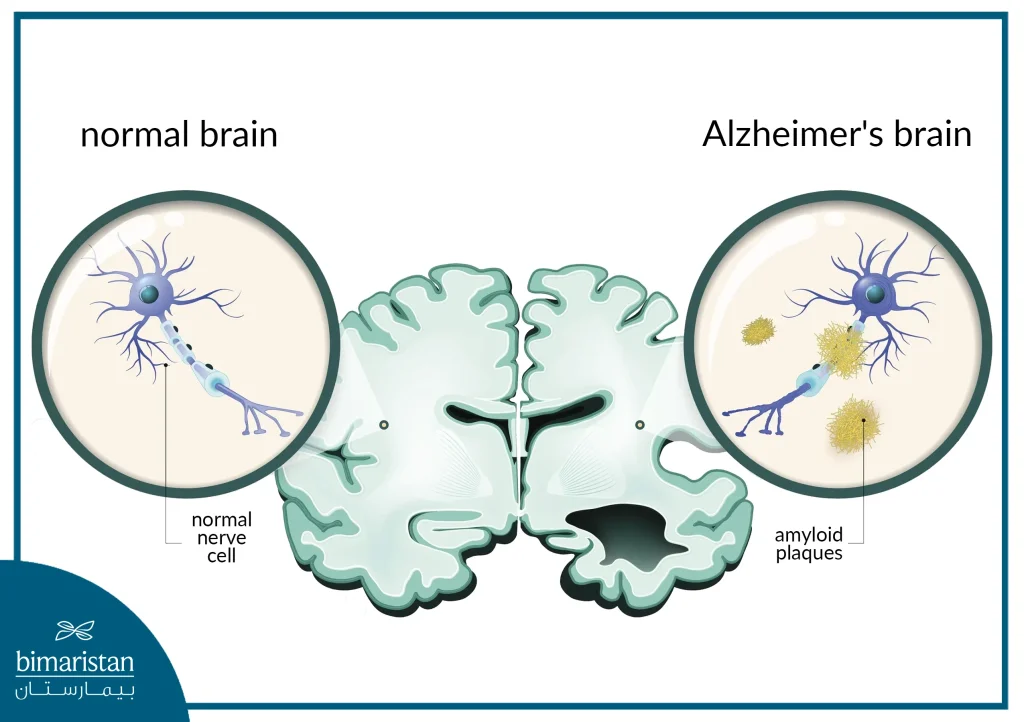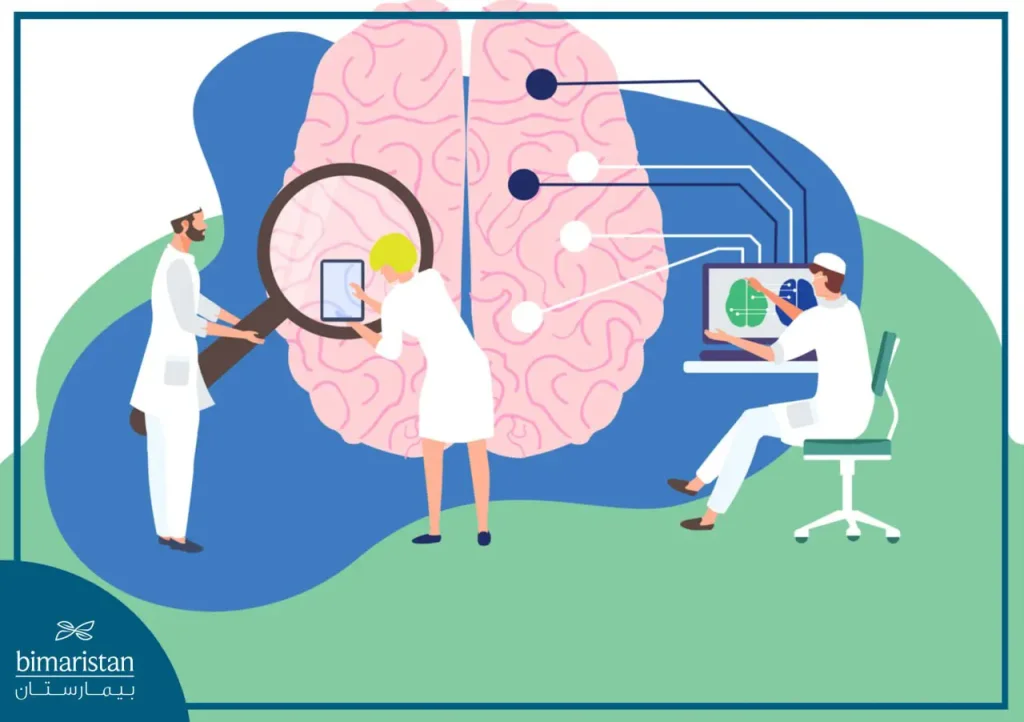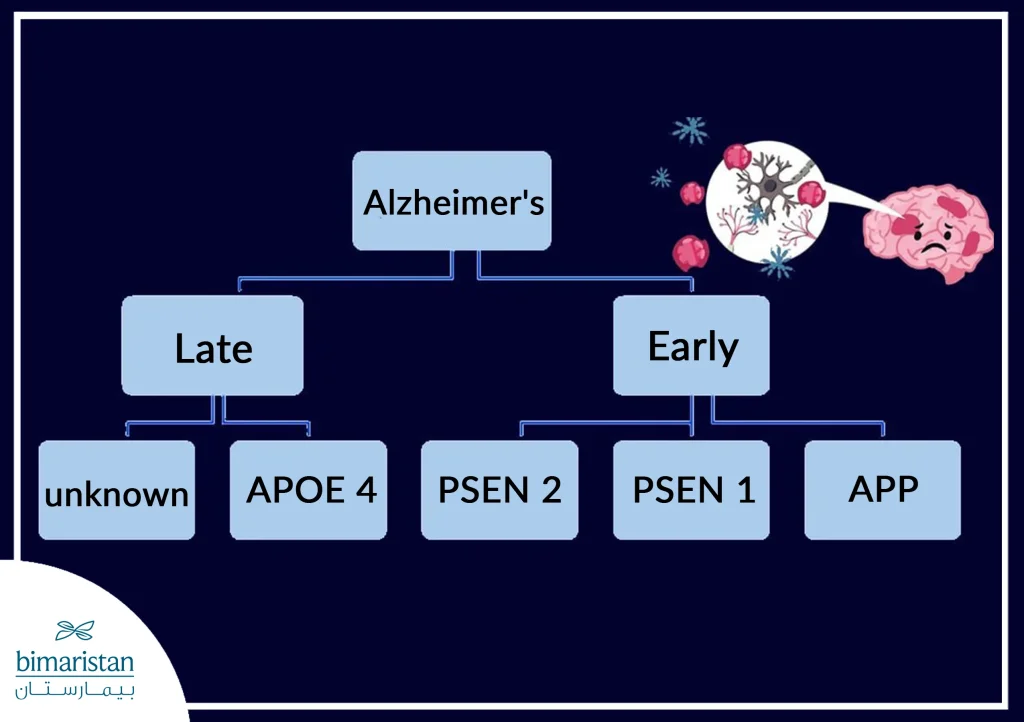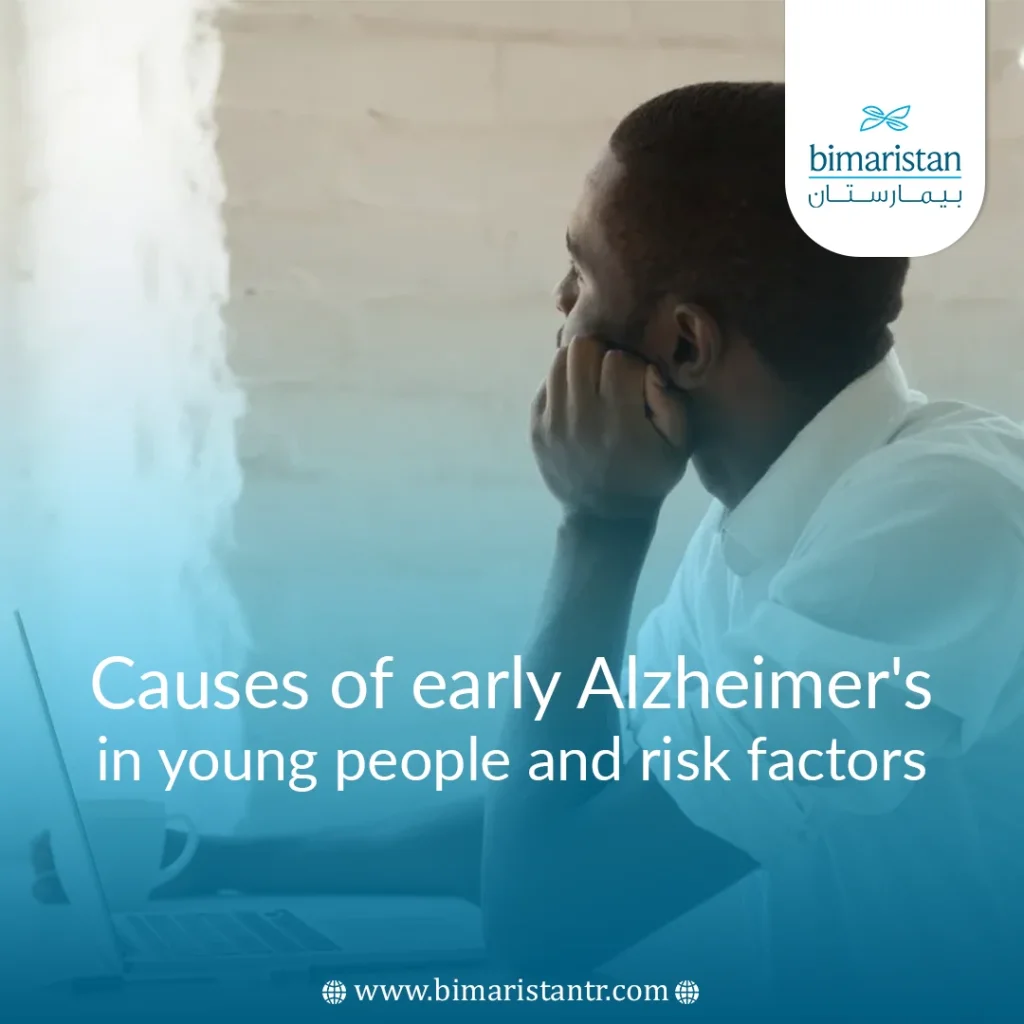Alzheimer’s disease is the most frightening thing for a person as they get older, but it is sad to know that it can affect young people. Knowing the causes of early Alzheimer’s in young people may help reduce the risk of developing it.
Alzheimer’s disease is known to us as an aging disease that affects the elderly, but did you know that it also affects young people? What are the most prominent causes of early Alzheimer’s in young people?
Early Alzheimer’s disease in young people
Alzheimer’s disease is often associated with aging and old age, and it is a type of dementia. This disease is characterized by memory loss to some extent and affects the patient’s behavior and thinking so that he cannot remember people, events, and other things.
Several factors contribute to the onset of the disease, including changes that occur in brain cells due to aging and genetic factors, in addition to a person’s lifestyle and other external factors such as contracting some diseases.
Aging, specifically the age of 65 and above, is the most common stage at which Alzheimer’s disease occurs, but in rare cases a person may develop early Alzheimer’s disease, symptoms may start at the age of thirty, forty or fifty.
The causes of early Alzheimer’s disease in young people are not yet precisely known, but there is one known risk factor that may be a cause of this, which is genetic factors.
How does early Alzheimer’s disease occur in young people?
Searching for the causes of early Alzheimer’s disease in young people is a trend in scientific research, as knowing the causes of the disease helps in finding the appropriate treatment for it.
When examining a part of the brain cells affected by Alzheimer’s disease, plaques and tangles, which are present in healthy brain cells but much more so in the brain affected by Alzheimer’s, were observed.
Plaques
Arise when parts of the beta-amyloid protein combine. Beta-amyloid is produced by the breakdown of another, larger protein found in the fatty membrane surrounding nerve cells. Beta-amyloid aggregates, or plaques, block the nerve pathway between nerve cells through which nerve signals are transmitted at the synapse. This stimulates immune system cells that form inflammation and devour the damaged cells.
Tangles
A protein called tau helps keep nerve fibers straight so nutrients and other important materials can travel between nerve cells in the brain. At some point, the tau protein breaks down, and the fibers become twisted instead of straight, which is where tangles are called. Because of the formation of these tangles, nutrients will not reach the nerve cells, which will later die.

Symptoms of early Alzheimer’s in young people
The symptoms of early Alzheimer’s in young people are similar to the symptoms of Alzheimer’s in adults, and the symptoms are divided into early symptoms and late symptoms. Still, we will not go into these divisions.
Symptoms of early Alzheimer’s disease in young people include:
- Not remembering important things and forgetting them, especially information that the person has recently learned, in addition to forgetting important dates.
- Repeating questions about things that have been asked repeatedly
- Inability to solve simple basic problems due to loss of concentration, such as searching for things or forgetting what you are doing
- Forgetting the date and time you are in
- Wondering how you got to where you are
- Vision problems
- Difficulty conversing with friends or family, and unable to find the appropriate expressions for what you want to say.
- Putting things in places and locations that are not their place and forgetting their places
- Changes in mood and personality, and thus you may withdraw a lot from social situations and perhaps work
- Late symptoms of early Alzheimer’s disease in young people
- Severe mood swings and changes in behavior
- Severe loss of knowledge of time and wondering about events and how you got to where you are
- Suspicion of everyone around you, even friends and family
- Having difficulty speaking and perhaps even swallowing or walking.
- Severe memory loss
Read More about: Symptoms and causes of Alzheimer’s disease.
Diagnosis and treatment of early Alzheimer’s disease in young people
The signs of mental deterioration that we explained earlier are the first evidence of the possibility of early Alzheimer’s disease in young people. Also, a family history of the disease may help in diagnosing the disease. After that, several tests are performed in Turkey to confirm the disease, which is:
- Some cognitive tests determine the strength of memory and test some mental skills and the ability to solve problems.
- Conducting computed tomography or magnetic resonance imaging of the brain shows damage to the brain cells.

As for the treatment of Alzheimer’s disease in Turkey, it is done through medications to replace the neurotransmitters responsible for attention and memory in the patient or through mental exercises that activate the brain and stimulate it to think. Treatment in Turkey has developed significantly, and many advanced devices and technologies, including transcranial pulse stimulation (TPS) technology, have begun to be introduced. The most important causes of early Alzheimer’s in young people
The most important causes of early Alzheimer’s in young people
The causes of early Alzheimer’s in young people are not yet clear. It is not known why some young people are more susceptible to early Alzheimer’s than others, but some simple possibilities may lead to this, which are as follows:
- There are three genetic mutations, the presence of one or all three of which may play a role in Alzheimer’s disease. When a parent or grandparent has these mutations, they may be passed on to their grandchildren later. The presence of one or more of these mutations makes a person more susceptible to early Alzheimer’s disease. These mutations are: (APP PSEN1 or PSEN2), but not everyone who has one can develop Alzheimer’s disease because it was found that 11% of early Alzheimer’s patients have one or all of these mutations.
- Having a parent or grandparent with early Alzheimer’s disease in young people increases the chances of developing the disease in children and grandchildren.

Risk factors for early Alzheimer’s disease
There are a group of factors that increase the chances of developing Alzheimer’s disease, whether for young people or the elderly, and these risk factors are:
Having some chronic diseases
Studies have found that having some diseases, such as stroke, heart disease, and high blood pressure, can increase the risk of Alzheimer’s disease.
Other diseases such as obesity and diabetes increase the risk factors for Alzheimer’s disease.
Unhealthy lifestyle
There is a possibility that an incorrect lifestyle may lead a person to Alzheimer’s disease, especially at an advanced age.
A healthy lifestyle is represented by: proper nutrition, exercise, good sleep, and nourishing the mind with education or continuous reading, all of which can reduce the chances of developing Alzheimer’s disease, especially with age.
Genetic factors and family history of Alzheimer’s disease are the most important causes of early Alzheimer’s disease in young people. It is important to diagnose the disease early to help reduce its progression and treat its symptoms before it progresses.
Sources:

